Dustin Smith and Sam Tideman discuss whether people are conscious in the intermediate state (between death and resurrection). Interestingly, neither of them think the deceased are currently in heaven or hell. Smith affirms the sleep of the dead, seeing all the dead, whether good or bad, as unconscious and unaware of the passage of time. Tideman puts forward the idea that the souls of the dead are in a semi-conscious dreamlike state in a chamber called Sheol or Hades. Today is part one of their discussion in which both lay out their positions and then discuss Ecclesiastes 9.10 and Isaiah 14.9-11. This is part one of their conversation. Stay tuned for part two next week.
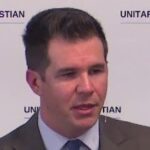 Dr. Dustin Smith currently serves as a New Testament scholar at Spartanburg Methodist College in South Carolina. Smith has authored or edited six books, including the 2024 monograph, Wisdom Christology in the Gospel of John. He is also the weekly host of the Biblical Unitarian Podcast.
Dr. Dustin Smith currently serves as a New Testament scholar at Spartanburg Methodist College in South Carolina. Smith has authored or edited six books, including the 2024 monograph, Wisdom Christology in the Gospel of John. He is also the weekly host of the Biblical Unitarian Podcast.
 Sam Tideman is a Harvard educated data scientist at Google who has keen interests in biblical studies, theology, and especially church history. He hosts the YouTube channel, “Transfigured,” which has a total of nearly 250k views with interesting guests like Tim Mackie, Alister McGrath, and John Vervaeke.
Sam Tideman is a Harvard educated data scientist at Google who has keen interests in biblical studies, theology, and especially church history. He hosts the YouTube channel, “Transfigured,” which has a total of nearly 250k views with interesting guests like Tim Mackie, Alister McGrath, and John Vervaeke.
Listen to this episode on Spotify or Apple Podcasts
—— Links ——
- More about Dustin Smith here
- More about Sam Tideman here
- Check out these other episodes discussing the intermediate state
- Get the transcript of this episode
- Support Restitutio by donating here
- Join our Restitutio Facebook Group and follow Sean Finnegan on Twitter @RestitutioSF
- Leave a voice message via SpeakPipe with questions or comments and we may play them out on the air
- Intro music: Good Vibes by MBB Attribution-ShareAlike 3.0 Unported (CC BY-SA 3.0) Free Download / Stream: Music promoted by Audio Library.
- Who is Sean Finnegan? Read Sean’s bio here

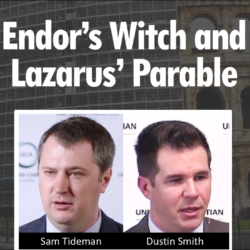
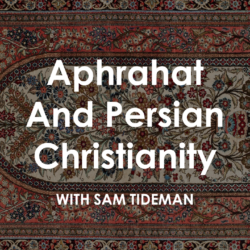

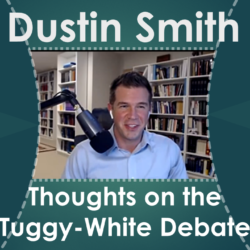
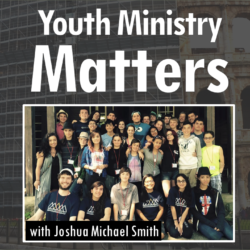
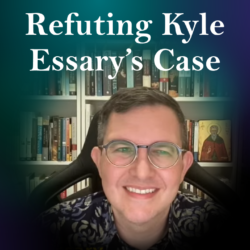
Thank you for this series on the Kingdom Journey. I also loved the book. Sam and Dustin are so knowledgeable I have to admit that I was lost for a few of the parts. Here are some basic questions.
Dustin starts off by clarifying that he would like to focus on the Person, not on the body or spirit or breath. But the Person was not defined. What is the person if not the body and spirit? Doesn’t it make sense to distinguish between the body and spirit? Does Sam use a different definition?
Also both Dustin and Sam do not distinguish between the righteous and unrighteous or those that die before the resurrection and after Jesus is resurrected. Is this their position, that there is no difference when it comes to determining where the body or soul goes after death?
Finally they seem to be referencing slides. Are these available?
Great discussion. I’d like to add my recent study on Sheol, which provides additional insights into Isaiah 14, the raphaim, the witch of Endor, all supporting Dustin’s clear and accurate biblical take on the condition of the dead. https://www.youtube.com/watch?v=yaWZrD6O_8s
I am a regular listener to both Sam and Dustin’s podcasts as they both produce quality content. Thus, to hear them both defend different views is really interesting to me.
I must also say that I am happy to hear my own views represented here—by Sam that is. I had always assumed my views were very fringe (at least within Christianity), so it’s nice to hear I am not the only one to at least entertain the idea.
Indeed, the question of the consciousness of the soul is a matter distinct from that of conditional immortality (of which I am, like you all, very convinced). It is of no use to conflate these two subjects here. What we need to consider is the state *before* rather than after the “*second* death,” or as Jesus put it, the death of “both soul *and* body in gehenna.”
Many times I have heard the statements of how the Bible is supposedly very clear about the dead being unconscious, but like Sam, I noticed that there are in fact many examples where this is not the case, not in the Hebrew bible, not in the New Testament, and indeed, not even in Jesus’ own words. And I agree with Sam also that many non canonical writings feature similar stories. Writings, even, that the NT authors do not hesitate to refer to.
We may discuss how there was not “one Jewish view,” but there is never one Jewish view on anything anyway it seems. Regardless, it seems to me that, especially among those whom Jesus aligned with most, theologically speaking (the Pharisees), a conscious intermediate state was an extremely common belief. And of the disagreements that Jesus did have, not only does he not seem to “correct” them on this, he seems to regard it as perfectly uncontroversial.
Even when Jesus was on the cross, he promised the thief that “today you will be with me in paradise.” And what view does Jewish orthodoxy, today as with the Pharisees of Jesus’ time, hold? That after bodily death, one’s soul goes to gehenna/sheol, in which there are two places, a place of flames and a place of paradise (gan Eden) for the righteous and refined (not going into the latter here, beside the point). This is what Jesus held to, as he did with his earlier parable we’re all familiar with (Lazarus), as is made clear once again when it is said he “proclaimed to the spirits” there (the fiery side). Mainstream Christianity has no clue how to deal with such texts (just read GotQuestions for some desperate attempts), but there is no need for Christian innovations anyway if the original audience already understood the meaning perfectly well.
For me personally, I know I value such views within Judaism a lot more than Dustin, as he himself admits to not focusing on this angle too much (or am I misrepresenting your approach here?). I would advise to at least reconsider whether this is wise. To this day, orthodoxy (in Judaism, that is) overwhelmingly holds to a conscious intermediate state. These ideas did not appear out of thin air. They are also not merely based on extrabiblical traditions. The Bible, the other literature of the time, and the traditions, all going back thousands of years by now, are all intertwined—have always been intertwined—and attempting to consider only a wooden reading of the canon will seriously impair one’s ability to properly interpret the texts of the Bible.
The supposed biblical case against a conscious intermediate state I have generally found to be widely and much too confidently overstated. In addition, it is perfectly compatible with conditional immortality, it works well within the Jewish understanding of the soul and the afterlife and—I would argue—so should it within Christianity.
Just to be sure I will again say that I really appreciate the work of both participants, as well as the conversation of this podcast. This is not meant to be a criticism but just my views that, predators, will be interesting to consider. Looking forward to next week’s episode!
This is long …
I call myself a monotheist and “Bible Christian” committed to the teachings of scripture and of Jesus. I am also a member of the online fellowship “Allegiance to the King” and hold a different position on this one topic to most of my fellowship. Like Sam & Dustin, I also take the position, what does the Bible say about the condition of the Dead and I read the dead as being awake. Like Sean, I also enjoy listening to those who have different interpretations (understandings) of scripture. I could be and likely am wrong on some things, and I want to grow. I additionally draw on reason and from my own experiences and those of others in my personal understanding of an area, while always seeking to interpret any experiences within the guardrails of scripture.
In Ecclesiastes, I read scripture as saying … “we do NOT have an awareness OR involvement in happenings ON THIS EARTH” (under the sun) in the intermediate state prior to our later resurrection on earth. I DO NOT read scriptures clearly indicating anywhere that we are “unconscious”. I read all verses on being “asleep” as speaking phenomenologically of our physical appearance at death. I share more on this below.
I fully agree with Dustin that our souls are mortal, including in the intermediate state, up to the resurrection. However, I take the position from both scripture and personal experience that … WE ARE THREE-PART BEINGS, NOT TWO-PART. I have absolutely zero doubt that we are three-part beings. My certainty, additional to scripture, comes from one of the visions the Holy Spirit has personally used with me when I was wrestling with understanding a number of doctrines being taught to me in the trinitarian Bible College I was attending between 2011 and 2015. Another doctrine I started discarding at that time was the separate Trinity doctrine as I was not reading it anywhere in scripture. My Bible teachers knocked me down at that time with “it’s meant to be mystery” and accusations of me being an “Arian”. At that time, I reluctantly gave them the benefit of the doubt and withdrew my challenging on the trinity and went off to research what an Arian was, but that is a whole other story for me, and for another conversation (I had fully discarded trinitarianism by 2016, and then felt very alone on this important understanding of God and Jesus for several years).
Dustin places emphasis on scriptures stating “souls” are dying. Brings up word “Nephesh” and 50 verses in Old and New Testaments saying “souls die”. Leviticus 23:29; Ezekiel 18:4,20 and Jesus giving his “soul” as a sacrifice for many (1 John 3:16) were quoted. I see nothing here about souls being unconscious, just dead bodies. Dustin then admits translations actually say “life” and “not soul”. Claiming scripture says the “mortal soul” dies is adding to scripture is my firm understanding and leaves no place for the second death to occur. The mortal conscious soul continues up to the judgment is my reading of scripture.
For me … Awakening from the dust of the ground in Daniel 12:2 is about judgment and being reclothed with not just a physical body but about resurrection with an immortal physical body or being cast into the Lake of Fire to be annihilated. When Jesus died on the cross his body took on the appearance on sleep of death and was placed in a tomb. Scripture is clear that he was conscious elsewhere during the period between the cross and his Resurrection. This is “yet another” signal to me that we are also conscious in our intermediate state if he is our role model and fully human.
Dustin’s “self-evident” truth in his point #4 is from scripture. Death is described in a multifaceted way in scripture, hence the confusion and this debate. Revelation … talks about the second death which clearly indicates has more than one stage, that there is a first death that was not complete or final. What is being discussed in this presentation is intermediate period between the first death and the second deaths and our experience during this period.
I found the following lengthy scripture study useful …
https://www.thoughtstheological.com/first-and-second-death-similarities-and-differences/
(I don’t read his pre-existence or trinitarian statements as consistent with scripture)
Fully agree with Dustin about people not unconditionally possessing immortality before final judgment. This in no way means people cannot exist as disembodied conscious souls up to the judgment.
SAM’s position … I land really, really close to Sam’s understanding of the intermediate state with one difference … the righteous dead AFTER the cross going to Heaven (not Hades) to be with Jesus until their bodily resurrection. I support all of his reasoning, having explored most of them myself already. A few of the verses Sam quoted included … Isaiah 14.9-11; Matthew 10:28; 1 Peter 3:18-20.
Dustin’s claims that all “soul consciousness” verses are of a certain non-literal genre rather than literal (some may be) as some sort of proof that souls are really unconscious does not work for me. Metaphorical or not, the clear message is that they are still conscious. I found Dustin’s “unconscious soul” arguments weak and ambiguous.
BELOW IS A SUMMARY OF MY OWN (AND A FEW OTHERS) STUDIES AND EXPERIENCES ON THIS SUBJECT …
I FULLY BELIEVE HUMANS ARE THREE-PART BEINGS WITH A BODY, SOUL, AND SPIRIT, AS THE SCRIPTURE PLAINLY TEACHES AND NOT TWO-PART BEINGS WHICH FORM A SOUL AS SOME CHRISTIAN GROUPS TEACH. I understand human beings as multifaceted beings with interconnected dimensions, and that understanding the distinction between soul and spirit will impact a believer’s spiritual growth. I understand human beings as multifaceted beings with interconnected dimensions. The soul deals with our intellect, earthly experiences and emotions, influencing our decisions and actions; while the spirit connects us to the divine, guiding us toward God and eternity. For instance, how can a believer be greatly troubled in their soul and circumstances (wrestling with anger, doubt, fear, despair…), yet at the same time be spirit-filled with a peace, hope & even joy that they don’t really understand. I have been in this place in my very low times and it is such a comfort. In our daily lives, understanding the complex interplay between soul and spirit, helps us manage our emotions and reactions, as well as be more compassionate and empathetic towards others in our relationships.
1 Corinthians 2:14; Philippians 4:1-13, John 16:33, Isaiah 26:3, Proverbs 3:5-6; Ephesians 4:22-24 are verses speaking of this distinction of functions. Our souls analyse the pros and cons of our circumstances in moments of decision-making based on emotion and intellect, but we should also be checking-in through our spirits for divine guidance and wisdom (spiritual discernment). Please be sure you are listening to the right spirits. Matthew 10:19-20; John 16:13; Luke 4:1; Acts 13:2,15:28,16:6-10; Romans 8:14;26-27; Galatians 5:25; Psalm 51:10; Daniel 6; Job 19:25-27 are a few verses clearly speaking of this dynamic. The word “soul” is distinct from both “body” and “spirit”, and refers to the inner self or life that is represented by the Hebrew word “nephesh” (mind, will, and emotions) used over 700 times in the Old Testament, and 105 times by the Greek word “psyche” in the New Testament. Psyche is translated into English in the following seven different ways: soul-58; life-40; mind-3; heart-1; you-1; heartily-1; us-1. Matthew 10:28; Luke 16:19-31 make it very clear that the soul/spirit can exist outside the body. The spirit in Hebrew is referred to as “ruach” and is used to describe God’s breath of life (a spiritual dimension). Ezekiel 37:5-6 speaks of Almighty God breathing life into dry bones emphasizing the spiritual nature of the “ruach”. The word “ruach” is used over 380 times in the Old Testament in association with God’s power and presence. The Greek equivalent “pneuma” is used for the Holy Spirit and the breath of life or inner spiritual life (the immaterial aspect of a person) connecting us to God. Based on 1 Thessalonians 5:23; Hebrews 4:12, I understand we are created in our mother’s womb with a mortal body and mortal soul (both which grow and change), and are imbued with spirit or life force (divine spark of life) by God which is eternal in nature. I like and agree with the way RC Sproul states this…
“That the soul survives the grave is not a testimony to its indestructibility or of its intrinsic immortality. The soul as a created entity is mortal. It survives the grave only because it is sustained and preserved by the power of God.”
The way I read scripture, the spirit and soul are two individual parts CONNECTED together making up the “inner man” described in scripture. The spirit (ruach/pneuma) is the divine spark giving life to and empowering the consciousness of the soul (nephesh/psyche or mind, will, emotions). See Genesis 2:7. The soul also communicates to our physical brain, and the five physical senses of the body communicate to the physical brain. So, while the spirit and soul live in the physical body (our earthly tent), the “inner man” is connected to the body and gives life to the body. Our spirit/soul disconnect from our earthly tent after the death of the physical body, and is gathered to our relatives according to scripture. If our soul is found worthy to receive eternal life (through the received righteousness of Christ), then the life-giving spirit will remain connected to our soul at the final judgment, and God additionally resurrects or places our inner man into new immortal glorified spiritual bodies like Jesus has. God only separates his life-giving spirit from the resurrected wicked dead in the “Lake of Fire” where their bodies & souls are completely destroyed never to rise again. The life-giving spirit of the wicked dead then RETURNS to Yahweh. This is the “second death”. Here are helpful teachings on spirit, soul, and body makeup of human beings; and how the parts work together:
Soul vs Spirit (John Paul Jackson)
https://youtu.be/kKbTtc0ktb0
Spirit, Soul & Body (Andrew Wommack)
https://youtu.be/MUiIAZTMiBM
What is the DIFFERENCE between your SOUL and SPIRIT?
https://youtu.be/lcul5cQX2c4
I BELIEVE WHEN A CHRISTIAN DIES THEIR SOUL & SPIRIT GOES IMMEDIATELY TO HEAVEN CONSCIOUSLY INTO THE PRESENCE OF ALMIGHTY GOD AND HIS SON JESUS TO AWAIT LATER RESURRECTION IN GLORIFIED IMMORTAL PHYSICAL BODIES. The FIRST death is not the end of personal life, only of our bodily experience of life on this earth (under the sun). We then continue unembodied in another place for a period of time commonly called the “intermediate state” representing the time between the person’s bodily death and later bodily resurrection. Both the righteous and the wicked continue to exist in a conscious disembodied personal way after death, but the experience of people in these two groups is significantly different in their intermediate state and an anticipation of the different destinies that await them after resurrection and final execution of judgment (Daniel 12.2; John 5:28-29). The Bible itself assures us that WHEN CHRISTIANS DIE, while their bodies go into the grave, their soul/spirit immediately is CONSCIOUSLY PRESENT with the Lord in heaven (it was Abraham’s bosom / Paradise before the Cross). If all the dead believers are currently unconscious or non-existent that does not sound like much of a heavenly reward, AND who then is Christ currently ruling over and interacting with in Heaven? Luke 6:22-23 to me describes consciousness in Heaven, otherwise it should have read “… resurrected reward on Earth …”. Where the Bible speaks of death as “sleep” it is from an earthly perspective and refers to the way a person’s dead body looks (as if it were asleep). When scripture talks of the dead as “falling asleep”, “turning back to dust”, and the dying “being gathered to their people”, I read TWO things being described … the bodies’ phenomenological appearance at death AND the still conscious soul being gathered to another place. Phenomenological language occurs when we describe something as it looks, irrespective of how it is (Daniel 12:2; Luke 8:52; 1 Corinthians 15:6). A classic example of phenomenological language is talk of the sun rising and setting each day. The sun is out of sight BUT STILL EXISTS and is STILL SHINING. Scriptures that directly or indirectly support a CONSCIOUS INTERMEDIATE STATE include …
Genesis 4:10; 15:15; 25:8; 35:18,29;
1 Samuel 28:14-19; Matthew 17:1-8;
Mark 9:1-8; Luke 9:28-36; 15:10;
Luke 16:19-31; 20:38; 23:42-43,46; 24:36-40;
John 5:24; 8:52; 11:23-27; 12:26; 14:1-3,28;
Acts 7:55-60; 1 Peter 3:18-20; 2 Peter 2:9
Matthew 8:12; 10:28; 11:20-24; 12:39-41; 22:13,32; 25:30;
2 Peter 2:3-4,17; Job 15:23,30; 18:18
Ephesians 1:9-10; 3:14-16; 4:7-9;
Hebrews 11:4; 12:1,23; James 5:1-4;
2 Corinthians 5:1-10; 12:3-4; Jude 1:7;
1 Thessalonians 4:13-18; 5:9-10;
Philippians 1:21-24, 3:20; Galatians 2:20;
Revelation 4:10, 5:8, 6:9-11; 7:13-17; 19:4; 20:4
Numbers 16:31-33; Job 26:6; Psalm 139:7-8;
Ezekiel 31:15-18; Isaiah 14:9
In John 11:25-26 … where Jesus says “I am the resurrection and the life” he is saying something much stronger than just bringing about or being the cause of the resurrection. The resurrection from the dead and eternal life in fellowship with God are also so closely tied to Jesus, that they are embodied in him, and can be found only in relationship to him. In John 14:1-3,28 … I understand “my Father’s house” as referring to the Kingdom of God. In Luke 16:19-31 … Both the rich man and Lazarus die, and their souls following death are DEFINITELY NOT pictured as being “asleep” (or unconscious). The men in this story (whether real or fictional), although being physically dead, are pictured as consciously awake, aware of their surroundings, and conversing in Hades/Sheol. Their bodies are turning to dust elsewhere, while their souls remain very much conscious in intermediate afterlife places. The souls of the righteous dead were gathered to Paradise / Abraham’s Bosom (a righteous part for Hades) before the Cross, and then later taken to Heaven by Jesus after the Cross. The book of Revelation shows saints worshipping God, singing hymns, playing instruments, making requests to Christ to avenge their martyrdom & offering prayers for the saints on earth (see Rev. 4:10,5:8,6:9-11,7:13-17). Still to this day, the souls of the wicked dead are all being consciously gathered to the temporary bad part of Sheol, or Hades in the Greek. Are Lazarus and the “rich man” real, or fictional for the purposes of a parable? I don’t see Jesus supporting “soul sleep” here IN EITHER interpretation, and I don’t believe Jesus would sow confusion. Jesus also said to the thief on the cross, “Today you will be with Me in paradise” (Luke 23:43) … I really DO believe he meant “that very day”. I read the souls of the UNSAVED as being conscious and going to a place of TEMPORARY torment, as evidenced in Luke 16:19-31, KNOWING that ALL hope is lost forever. They can do nothing to change their outcome from this point onward. “Soul Sleep” is a controversial doctrine based mainly on more literal interpretations of Ecclesiastes 9:3-10; Psalm 6:5; 115:17; 146:4; Ezekiel 18:4; John 11:11-14; Luke 8:52-53; Acts 13:36; 1 Corinthians 15:51-54; 1 Thessalonians 4:16-17; Revelation 20:5 that to me have been taken out of their proper context. To me, these verses are figuratively or metaphorically speaking of God’s providence, or of the body or soul’s access to their former earthly existence. Soul sleep was first taught by some POST-APOSTOLIC Church Fathers, and then much later by Seventh-day Adventists, Jehovah’s Witnesses, Christadelphians, and other less well-known groups. I see those promoting this doctrine as being selective and biased in their treatment of scripture; similar to the eisegesis many use in promoting various unscriptural Trinity and Oneness understandings of God. For example … How are we meant to understand Ecclesiastes 10:19 … Are we really meant to literally believe “money” is the answer to everything? Readers must be wary of reading their preconceived positions back into scriptures which are meant to be understood figuratively and in the context of the author and his original audience. I also read from James 2:14-26 that the soul/spirit is very much separate and conscious but needs a body in order to demonstrate its faith, good works and genuine belief. When a person dies or experiences physical death, their body gradually turns back to dust, I read their soul/spirit is consciously gathered to another place. I have studied the “unconscious soul doctrine” IN DETAIL three times over the last few decades, and each time, came back to a complete rejection of the “soul sleep” doctrine as false. “Soul sleep” supporters are also divided within their own camp on whether the soul at physical death undergoes annihilation and later reconstruction OR is simply suspended in an unconscious state. Did you know that notable apostolic Church Fathers of the first and second centuries AD (Clement of Rome, Polycarp, St. Irenaeus, Shepherd of Hermas, …) all supported soul consciousness in the immediate state of the afterlife? Using “Platonism” as a strawman to support “Soul Sleep” is disingenuous and no proof of anything. It is clear to me that “soul sleep” promoters have become confused with their insistence for the resurrection of earthly bodies for any form of conscious existence, and that they stand in clear contradiction of many scriptures. Don’t get me wrong I also believe in conditional immortality (more on that below). I read Romans 8:23-24 as including the conscious dead “groaning” or “waiting eagerly” to put on immortal bodies at their resurrection. Moses, Elijah, and Samuel are all encountered in conscious intermediate states; and the scriptures describe JESUS ACTIVITIES IN HIS OWN CONSCIOUS INTERMEDIATE STATE following the cross BEFORE his bodily resurrection (Luke 23:42-43; 1 Peter 3:18-20; Ephesians 4:8-10; Psalm 16:10, 68:18; John 20:11-17; Acts 2:27). The exact form of everyone’s immortal bodily state remains largely a mystery, and we are told we will not fully know until the resurrection at Jesus second coming (1 John 3:2; John 5:29; Acts 24:15; 1 Thessalonians 4:13-18; 1 Corinthians 13:12, 15:45-49). However, as we will be like him, we can learn something about our resurrected immortal state from reading Luke 24, John 20:19-30 which speaks of Jesus’s immortal body following His resurrection. In his immortal resurrected body, Jesus ate and drank, his disciples touched Him, he had flesh and bones, and could also move at will without our own physical limitations. For more on the intermediate state check out these studies…
Awake beyond the Grave: What the Bible Says about Soul Sleep
https://insight.org/resources/article-library/individual/awake-beyond-the-grave-what-the-bible-says-about-soul-sleep
Christian Mortalism
https://en.wikipedia.org/wiki/Christian_mortalism#:~:text=Mortalists%20argue%20for%20soul%20sleep,Tree%20of%20Life%20is%20mentioned
Soul Sleep and the Afterlife – Dr Michael Heiser
https://youtu.be/KfatI7ZA1mo
Soul Sleep – Fact or Fiction
https://youtu.be/3WqZSMVgT7o?si=6eLLy0Rot1yut1n-
Finally, there appears to be one group of people who taste neither the first death or the second death. According to 1 Thessalonians 4:17 believers who are alive at Jesus second coming will experience neither form of death or any intermediate state.
I BELIEVE THE MILLIONS OF REPORTED NEAR DEATH AND OUT OF BODY EXPERIENCES (NDES & OBES) ACROSS ALL CULTURES AND TIME PERIODS ARE STRONG EXTRA-BIBLICAL EVIDENCE OF SOUL CONSCIOUSNESS IN OUR INTERMEDIATE STATE BETWEEN OUR FIRST DEATH AND RESURRECTION / JUDGEMENT.
Have you ever thought about OBEs and NDEs being recorded in the Bible? I have! In the New Testament, I believe we have what are the Apostle Paul’s and Saint Stephen’s OBEs and NDEs recorded for us (2 Corinthians 12:2-4; Acts 7:55-60). “1 Enoch”, Isaiah, Daniel, …, John’s “Revelation” all contains elements of other worldly encounters. Just because scripture in places is silent on reported other worldly encounters for a few who were bodily resurrected is proof of nothing, and certainly not soul sleep. The first time I immediately shared my NDE/OBE at age 15, I was considered crazy, so I did not continue to share that experience (which is still 100% vivid to me today). I have had more OBEs and visions since then, and never shared any of them immediately for this reason. Another consideration is that NDEs / OBEs can be distorted, influenced or orchestrated by evil spirits, so our understanding of them must always be informed or interpreted by Scripture, which I believe the Holy Spirit will never contradict. In 1 John 4:1-6 … John instructs us to test the spirits. 2 Peter 1:19 also informs us that the “prophetic word” should confirm our experiences. To me this includes all NDEs, visions, dreams, and other spiritual experiences; whether they are our own, or belonging to others. I apparently died for a short period at 6 weeks of age according to my mother (a snake was involved – go figure, and I can’t remember anything about that of course). I have also had one OBE that includes several common elements of the millions of reported NDEs (at age 15 I decided to suicide and believe I was given an OBE glimpse of Hades or Sheol – a place of profound outer darkness where I had no sensual inputs and experienced extreme distressing regret “gnashing of teeth” before Jesus rescued me). Over my lifetime, I have had hundreds of spirit-led dreams, at least half a dozen freak-me-out waking visions & signs, and in the last 14 years, definitely one more OBE. Perhaps two, I am still not sure if the second was an OBE or a vision. I personally have heard detailed accounts of five different NDE’s to date, all confirming the biblical narrative in slightly different ways. I believe being granted an NDE or OBE through the witness of the Holy Spirit does not mean a person will later receive eternal life, AS THEY HAVE NOT CROSSED OVER YET. NDE/OBE encounters are meant to be invitations encouraging experiencers onto the narrow path toward salvation and into the kingdom work God has planned for them. Experiencers can still reject this supernatural witness and go their own way, as we always have a choice this side of eternity. One personal subjective observation I would like to add about my own OBE and vision experiences, is the very different sense of the passage of time when they have occurred for me. I am a trained theoretical physicist, and currently have a theory about the most commonly reported element of NDEs. Many experiencers report traveling at fantastic speeds (often with Spirit guides or angels) through a tunnel across vast distances before appearing into an amazingly beautiful new world (“New Earth”?), and often at the outskirts of what would appear to be the “New Jerusalem” described in Revelation 21-22. It is a measurable scientific fact, that the faster one travels, the more time dilates or slows down for the speeding observer. This would mean that when the NDE traveller’s soul/spirit stops they are then in a distant future time relative to the Earth they have just left behind. This is pure speculation … Could the stunningly beautiful world and city that is reported, be the prophesied future “New Earth, and New Jerusalem” that scripture says will arrive at the end of the prophesied Millennial reign of Jesus? Could the souls/spirits of NDE’ers be experiencing not just a vision, but actually being transported temporarily to the future “New Earth & New Jerusalem”, before God then sends their souls back to their original time and place? This seems to make the most sense to me, according to both the NDE/OBE reports and the content of scripture.
I posted a long comment (I have done a lot of study on this one). Dont know if post came through or was deleted as it lost its structure?
It’s intriguing to hear people read 1Pet 3:18-9 and miss the obvious.
For Christ also suffered once for sins, the righteous for the unrighteous, that he might bring us to God, being put to death in the flesh but made alive in the spirit, 19in which he went and proclaimed to the spirits in prison…
He was dead.
Then he was raised in the spirit.
“in which” he went and proclaimed to the spirits. He only proclaimed to the spirits (as Sean rightly pointed out, these are not people) in the spirit in which he was made alive. So, He wasn’t speaking to anyone while he was dead/in the grave because he wasn’t made alive yet!